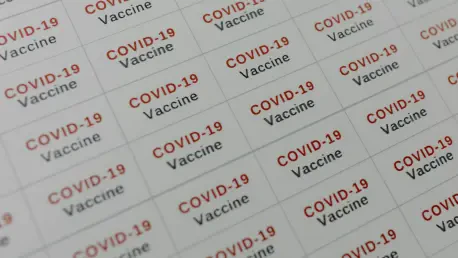The Stakes of a Public Health Crisis
Can individual choice trump public health safety? Faced with altered vaccine guidelines, the healthcare system is teetering on the edge of a potential crisis. As vaccinations remain a cornerstone in preventing disease spread, changes to well-established recommendations could unravel decades of advancements in public health and prompt unforeseen consequences for vulnerable populations. The suspension of COVID vaccinations for pregnant individuals and healthy children is more than a mere administrative shift; it could redefine how communities perceive health security and vaccination reliability.
Understanding the Implications
Federal vaccine guidance for pregnant individuals and healthy children is critical for safeguarding population health. These guidelines directly influence insurance coverage decisions, ultimately shaping broader public health policy. The abrupt change in vaccination criteria could lead to discrepancies in coverage, leaving many without adequate protection. This nuanced shift hints at a profound impact, as insurance providers struggle to define new boundaries for vaccine coverage amidst evolving recommendations.
Dissecting Kennedy’s Directive
Kennedy’s policy changes unfolded with notable intensity, reshaping the national vaccine discourse. Highlighting substantial alterations to the CDC’s Advisory Committee on Immunization Practices, these adjustments represent a bold divergence from conventional science-based healthcare guidelines. One pivotal example is the decision regarding thimerosal in flu shots. This debate illuminated the ongoing tension between scientific rigor and vaccine skepticism, intensifying the scrutiny of Kennedy’s reshaped committee’s credibility and intentions.
Voices from the Medical Community
Medical groups have expressed stark concerns over the direction of vaccine guidelines. Dr. Emily Keller, a pediatrician with the American Academy of Pediatrics, emphasized the necessity of adhering to science-founded recommendations, asserting, “The well-being of our communities hinges on robust support for empirical evidence.” An anonymous physician from the lawsuit conveyed trepidation about accessing COVID boosters, critical for healthcare workers. These voices underscore the collective desire to preserve effective vaccine accessibility and uphold the integrity and efficacy of established guidelines.
Navigating Vaccine Policy Amidst Misinformation
As misinformation continues to weave through public perception, healthcare professionals and policymakers are urged to advocate fervently for evidence-based vaccination guidance. Establishing a framework to engage insurance providers can ensure that adequate vaccine coverage aligns with scientifically backed policies. Communities must collaborate, fostering trust and transparency to shield public health initiatives from fear induced by misinformation. These strategies are pivotal to maintaining the cornerstone of national immunization infrastructures supported by congressional intent and scientific inquiry.
The lawsuit underscored a vital need for vigilance in preserving public health amidst rampant misinformation. It signified a healthcare community’s stance and sought judicial intervention to restore clarity in vaccine guidance. As legal representatives anticipated further actions, the case reflected diverse perspectives within the debate about sound science-based public health imperatives, encouraging constructive dialogue toward safeguarding community health for future generations.









